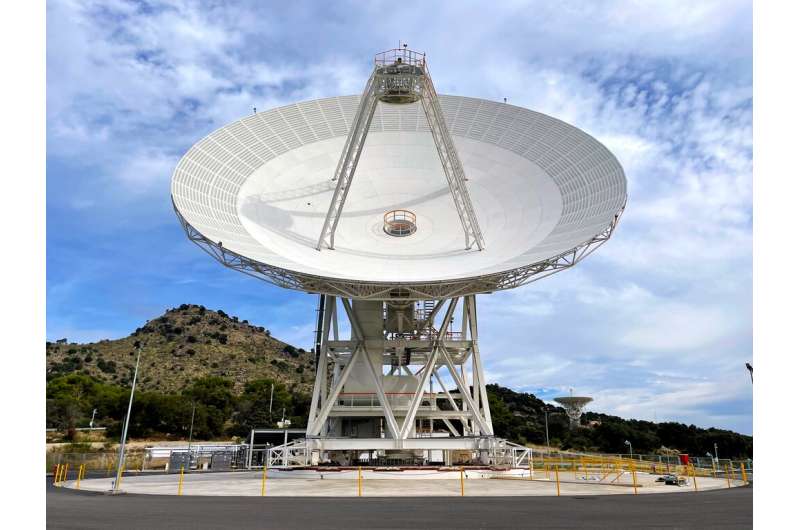
Copernical Team
A Day in the Life of a T-DOC
 It takes a team to plan Perseverance's daily activities, including people in many different roles. One of these roles is called the tactical documentarian, or T-DOC. The tactical documentarian takes notes of the decisions made throughout the day as the rover's plan changes, and shares those notes with the team so that the next day's planning team knows what happened, and why.
The planning
It takes a team to plan Perseverance's daily activities, including people in many different roles. One of these roles is called the tactical documentarian, or T-DOC. The tactical documentarian takes notes of the decisions made throughout the day as the rover's plan changes, and shares those notes with the team so that the next day's planning team knows what happened, and why.
The planning Sols 3414-3416: Progress!
 Over the weekend, we completed the planned drive with a relatively easy (by "Greenheugh Pediment" standards) traverse in the pediment. With lots of bedrock in the workspace, we quickly identified a contact science target for APXS and MAHLI, "Oosta," that was slightly less dusty than the surrounding bedrock and nicely layered.
We decided not to co-target ChemCam LIBS with the contact scienc
Over the weekend, we completed the planned drive with a relatively easy (by "Greenheugh Pediment" standards) traverse in the pediment. With lots of bedrock in the workspace, we quickly identified a contact science target for APXS and MAHLI, "Oosta," that was slightly less dusty than the surrounding bedrock and nicely layered.
We decided not to co-target ChemCam LIBS with the contact scienc China tests rocket engine for upcoming space lab launches
 A Chinese high-thrust oxyhydrogen rocket engine has completed a 520-second test in preparation for the upcoming launches of space station lab modules, its maker said on Wednesday.
Developed by the China Aerospace Science and Technology Corporation, the engine is designed for the core stage of the Long March-5 carrier rocket series, which will be used to launch two lab modules of China's or
A Chinese high-thrust oxyhydrogen rocket engine has completed a 520-second test in preparation for the upcoming launches of space station lab modules, its maker said on Wednesday.
Developed by the China Aerospace Science and Technology Corporation, the engine is designed for the core stage of the Long March-5 carrier rocket series, which will be used to launch two lab modules of China's or Carrier rocket preparing for its debut flight
 Smart Dragon 3, a new model of solid-propellant carrier rocket, is scheduled to make its debut flight in September, according to a senior rocket scientist.
Engineers at the China Academy of Launch Vehicle Technology, the country's major rocket maker, are building the first Smart Dragon 3, which will be launched for the model's first mission, said Jiang Jie, a senior rocket scientist at the
Smart Dragon 3, a new model of solid-propellant carrier rocket, is scheduled to make its debut flight in September, according to a senior rocket scientist.
Engineers at the China Academy of Launch Vehicle Technology, the country's major rocket maker, are building the first Smart Dragon 3, which will be launched for the model's first mission, said Jiang Jie, a senior rocket scientist at the Developing design tools for outer space structures
 West Lafayette IN (SPX) Mar 17, 2022
Achieving affordable space exploration will require lightweight structures for vehicles, solar arrays and antennas. Lightweight materials also will be used for components of structures like pressurized habitats, cryogenic tanks, landing gears and truss cages.
The problem is that NASA envisions that many of those structures will be made from tailorable
West Lafayette IN (SPX) Mar 17, 2022
Achieving affordable space exploration will require lightweight structures for vehicles, solar arrays and antennas. Lightweight materials also will be used for components of structures like pressurized habitats, cryogenic tanks, landing gears and truss cages.
The problem is that NASA envisions that many of those structures will be made from tailorable India maps out plan to increase satellite launches
 The Indian National Space Promotion and Authorisation Centre (INSPACe) has started hiring people for top posts at the Indian Space Research Organisation (ISRO) to take on new space missions and increase the manufacturing and launch of satellites.
The Indian Space Research Organisation (ISRO) is all set to take its missions to another level with an increase in the number of satellite manufa
The Indian National Space Promotion and Authorisation Centre (INSPACe) has started hiring people for top posts at the Indian Space Research Organisation (ISRO) to take on new space missions and increase the manufacturing and launch of satellites.
The Indian Space Research Organisation (ISRO) is all set to take its missions to another level with an increase in the number of satellite manufa ISS crews prepare for flow of visitors, rotations over next month
 Crews on the International Space Station (ISS) will cope with almost unprecedented human congestion as 18 astronauts and cosmonauts arrive, work and depart from it over the next month, NASA ISS Operations Integration Manager Dina Contella said.
"[The] Soyuz launch on schedule on Friday [is] bringing three Russian crew members to the ISS and then returning [on March 30] with three ISS crew
Crews on the International Space Station (ISS) will cope with almost unprecedented human congestion as 18 astronauts and cosmonauts arrive, work and depart from it over the next month, NASA ISS Operations Integration Manager Dina Contella said.
"[The] Soyuz launch on schedule on Friday [is] bringing three Russian crew members to the ISS and then returning [on March 30] with three ISS crew NASA extends Ingenuity Helicopter Mission
 NASA has extended flight operations of the Ingenuity Mars Helicopter through September. In the months ahead, history's first aircraft to operate from the surface of another world will support the Perseverance rover's upcoming science campaign exploring the ancient river delta of Jezero Crater. Along the way, it will continue testing its own capabilities to support the design of future Mars air v
NASA has extended flight operations of the Ingenuity Mars Helicopter through September. In the months ahead, history's first aircraft to operate from the surface of another world will support the Perseverance rover's upcoming science campaign exploring the ancient river delta of Jezero Crater. Along the way, it will continue testing its own capabilities to support the design of future Mars air v 'Visionary' US astrophysicist Eugene Parker dead at 94

Eugene Parker, a pioneering American astrophysicist whose mathematical prediction that charged particles streamed from stars in a solar wind was met with disbelief before he was ultimately vindicated, has died aged 94, NASA said on Wednesday.
Parker was hailed as a visionary who laid the groundwork for the field of heliophysics, the science of understanding the Sun and its interactions with Earth and the solar system, including space weather.
In 2018, he became the first person to witness the launch of a spacecraft bearing his name, NASA's Parker Solar Probe.
NASA adds giant new dish to communicate with deep space missions

There's a powerful new member of NASA's family of giant antennas that enable engineers and scientists on Earth to communicate with the growing number of spacecraft exploring our solar system.
Called Deep Space Station 53, or DSS-53, the 111-foot (34-meter) antenna is part of NASA's Deep Space Network (DSN).
